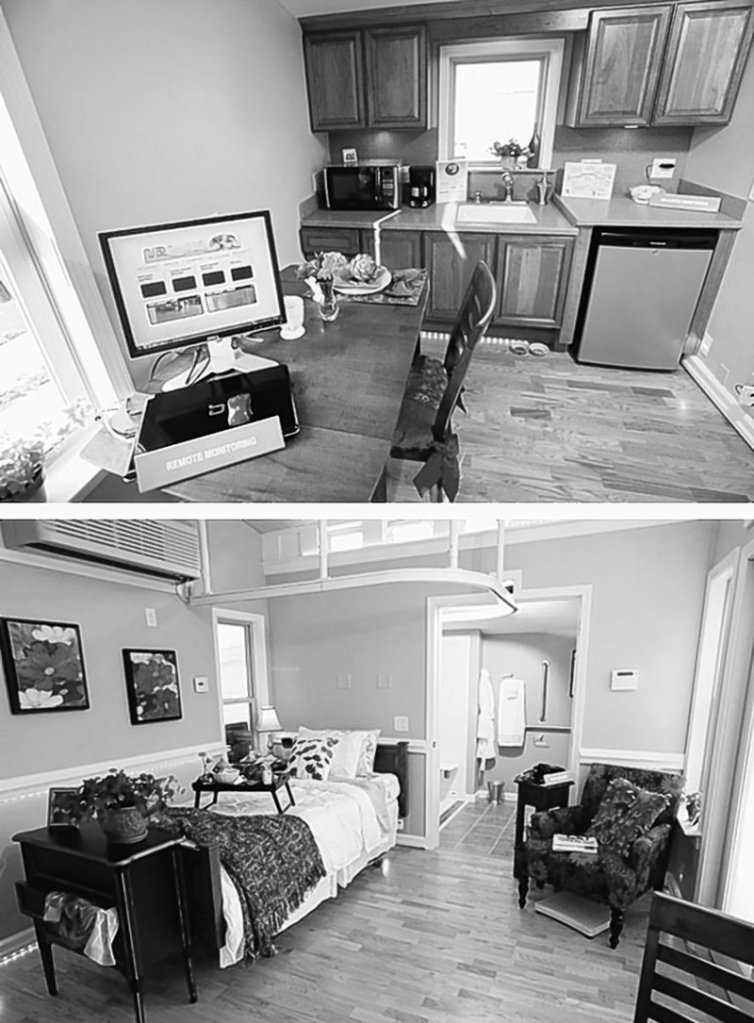A small Virginia firm hoping to revolutionize the way Americans care for aging family members has unveiled its first prototype of a portable, high-tech dwelling that would provide temporary shelter for a sick or elderly relative in his or her family’s backyard.
On Monday, N2 Care, a company formed by a Methodist minister in Salem, Va., showed off its first MedCottage, a 12-by-24-foot prototype filled with biometric technology that would allow a family and health-care providers to monitor the condition of an aging or disabled relative. The cottage contains air filtration systems, video links, devices that allow the remote monitoring of vital signs and sensors that could detect an occupant’s fall.
Until now, the MedCottage had been an idea on paper only. Even before the prototype was trotted out, however, the company’s concept had received an important endorsement: The Virginia General Assembly this year passed legislation that supersedes local zoning laws and allows families to install such a dwelling on their property with a doctor’s order.
AARP, the lobbying group for aging Americans, has said local zoning laws pose one of the biggest obstacles to making such dwellings a practical solution to caring for aging family members in what it calls “accessory dwelling units.”
Although the bill passed almost unanimously, detractors have dubbed the concept the “granny pod” and predicted that it could create conflicts between neighbors who find the dwellings unsightly. Some critics also worry that the set-up could lead to cases of neglect involving elderly or disabled occupants of the dwellings.
The Rev. Ken Dupin, pastor of the Salem Wesleyan Church, created the MedCottage as an alternative to nursing homes as 78 million baby boomers head toward retirement. As a minister in northern Virginia and elsewhere, Dupin had encountered aging people who were distressed at the prospect of moving into nursing homes far from family when they could no longer care for themselves.
The company envisions that families could purchase or lease a MedCottage and set it up on their property, hooking it up to their home’s electrical and water supplies like an RV.
Nancy Thompson, a spokeswoman for AARP, said the MedCottage has some of the features the organization advocates in accessory dwelling units, but not all of the universal design features that could be useful for people of all ages. But she said it’s also a step in the right direction for accessory dwelling units.
Send questions/comments to the editors.



Success. Please wait for the page to reload. If the page does not reload within 5 seconds, please refresh the page.
Enter your email and password to access comments.
Hi, to comment on stories you must . This profile is in addition to your subscription and website login.
Already have a commenting profile? .
Invalid username/password.
Please check your email to confirm and complete your registration.
Only subscribers are eligible to post comments. Please subscribe or login first for digital access. Here’s why.
Use the form below to reset your password. When you've submitted your account email, we will send an email with a reset code.